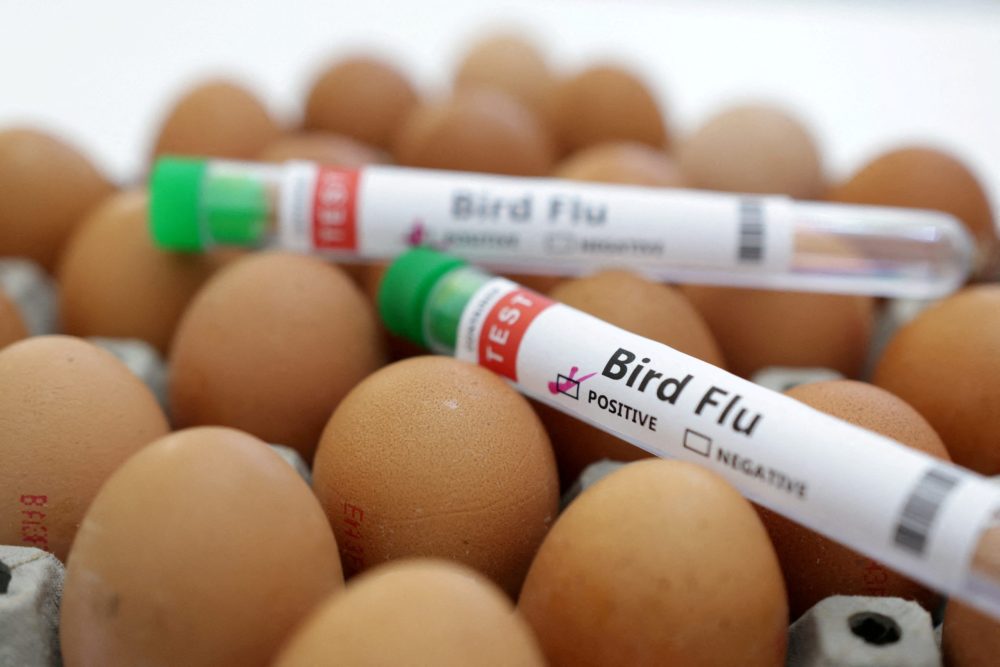Bird flu infects third US dairy worker; Michigan set to expand testing

A third U.S. dairy worker tested positive for bird flu after exposure to infected cows, and was the first to suffer respiratory problems, U.S. officials said on Thursday.
The infection was the second human case in Michigan, which has confirmed more cases of bird flu in dairy cattle than any other state. It also expands the symptoms for human cases, after the two workers who previously tested positive experienced only conjunctivitis, or pink eye, and recovered.
Read Also

Feds pledge $8 million to crop diversification research
The federal government will give over $8 million to Ag-West Bio Inc. for crop diversification research said federal ag minister Lawrence MacAuley today.
The U.S. Centers for Disease Control and Prevention (CDC) said the latest case does not change its assessment that bird flu is a low risk to the general public.
Meanwhile, Michigan will soon begin testing dairy farm workers for signs of prior infection with avian flu, a county health official told Reuters.
“We have not seen signs of sustained human-to-human transmission,” Dr. Natasha Bagdasarian, Michigan’s chief medical executive, said in a statement.
The ongoing outbreak of avian flu in dairy cattle has affected 67 herds in nine states since March, according to CDC data.
The third worker to test positive reported upper respiratory tract symptoms including cough without fever, and eye discomfort with watery discharge, the CDC said.
The patient was given antiviral treatment, is isolating at home, and the symptoms are resolving, CDC said. Household contacts of the patient have not developed symptoms and are being monitored for illness, the agency added.
The worker was employed at a different farm than the previous human case Michigan reported on May 22, the state said.
CDC reported the first human case connected to dairy cattle in Texas on April 1. None of the three human cases are associated with the others, the agency said.
“Even though there were respiratory symptoms present in this individual, it was still a mild case,” said Dr. Amesh Adalja, an infectious disease expert at the Johns Hopkins Center for Health Security. “This underscore the risk that is particular to dairy farm workers.”
CDC officials have been eager to test blood samples of farm workers for signs of prior infection to help understand the scope of the bird flu outbreak.
Michigan county and state officials will collaborate with the CDC on the testing effort, said Chad Shaw, health officer and environmental health director with the Ionia County Health Department in Michigan. Details of the plan for testing have not been previously reported.
Ionia County has reported avian flu infections in four dairy cattle herds and four poultry flocks, according to state data.
The goal of the testing is to discern how the virus is spreading from farm to farm, including whether humans have carried the virus asymptomatically, Shaw said, adding that he did not know when the testing would begin or how many workers would be tested.
A CDC spokesperson confirmed the testing and said the agency will be providing technical assistance to the state, which is coordinating the effort.
Testing for prior infection is important for determining how widespread the virus is among humans, said Michael Osterholm, a bird flu expert at the University of Minnesota. Widespread exposure could increase the chances that the virus will mutate to become more easily transmissible in humans.
If testing shows very few infections, he said, that would be an indication that “the barrier is still substantial for this virus to jump to humans.”
Source: Farmtario.com

